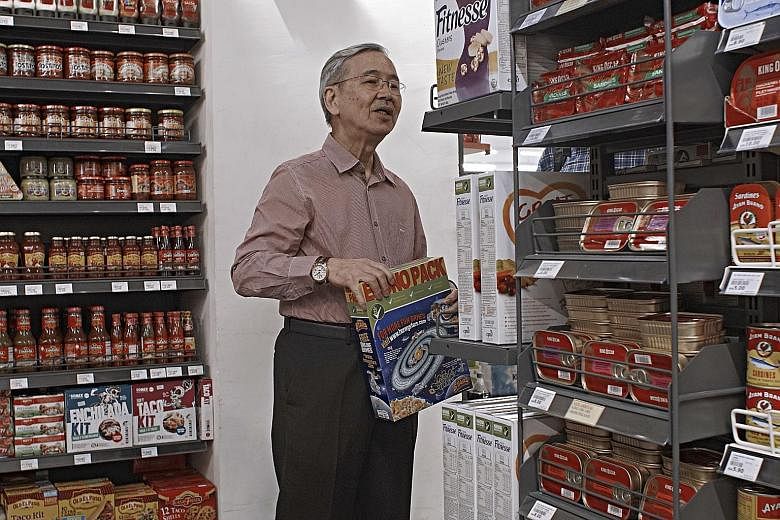KUALA LUMPUR • Over the past three decades, this increasingly prosperous nation has become the fattest country in Asia, with nearly half the adult population now overweight or obese.
Several years ago, Dr Tee E Siong, Malaysia's leading nutrition expert, decided to act, organising a far-reaching study of local diets and lifestyle habits.
The research, conducted by scientists from the Nutrition Society of Malaysia, which Dr Tee heads, has produced several articles for peer-reviewed academic journals.
But scientists were not the only ones vetting the material. One of the reviewers was Nestle, the world's largest food company, which financed the research.
Among the published articles was one that concluded that children who drank malted breakfast beverages - a category dominated in Malaysia by Milo, a sugary powder drink made by Nestle - were more likely to be physically active and spend less time in front of a computer or television.
The research exemplified a practice that began in the West and has moved, along with rising obesity rates, to developing countries: deep financial partnerships between the world's largest food companies and nutrition scientists, policymakers and academic societies.
As they seek to expand their markets, big food companies are spending significant funds in developing countries in support of local nutrition scientists. The industry funds research, pays scholars consulting fees, and sponsors nutrition conferences at a time when sales of processed foods are soaring.
In Malaysia, sales have increased 105 per cent over the past five years, according to Euromonitor, a market research company.
Similar relationships have ignited a growing outcry in the United States and Europe, and war in the field between those who take food industry funding and those who argue that the money manipulates science and misleads policymakers and consumers.
But in developing countries, where government research funding is scarce, companies are doubling down on their efforts.
Few examples of close ties between industry and science are as striking as those held by Dr Tee, 70.
"He's a god in the region," said Dr Barry Popkin, a professor of nutrition at the University of North Carolina. "But at the same time, he's very linked to industry."
When corporate money influences nutrition science, Dr Popkin said, the evidence of what is healthy for people "gets obscured, gets confounded".
In addition to Nestle, Dr Tee's work has been funded by Kellogg's, PepsiCo and Tate & Lyle, one of the world's biggest makers of high-fructose corn syrup.
Dr Tee said he has used his position in the government to push for important steps to regulate companies, including a 2003 rule that required food companies to put nutritional information on their packaging.
"We were one of the first countries in Asia to do it," he said.
Nestle said it is important for the company to collaborate in efforts to improve nutrition around the globe. "Nestle believes that public health issues can only be addressed by a broad multi-stakeholder approach and that we can play a catalyst role," the company said in an e-mailed statement.
Nestle reads papers before publication as part of a written agreement between the company and Dr Tee's Nutrition Society.
The company said its review of research was intended "to ensure that the methodology was scientifically correct".
Dr Tee, who has a doctorate in food science from the Universiti Sains Malaysia, Penang, said: "We have to stop blaming the multinationals." The real problem, he continued, is not the type of food people eat, but how much of it, and their lifestyle. "Malaysians are always eating. They don't exercise."
In Malaysia, Dr Tee's Nutrition Society created an education pamphlet for parents that explained "the wonders of whole grains". The brochure includes advertisements for Nestle's Koko Krunch and Cookie Crisp cereals, which have a "whole grain" label but are more than a quarter sugar by weight.
Corporate funding of nutrition science in Malaysia has weakened the case against sugar and processed foods, said Ms Rohana Abdul Jalil, a Harvard-trained diet expert based in Kelantan, where obesity is high ."There's never been an explicit, aggressive campaign against sugar," she said.
Dr Tee said the obesity risk in Malaysia would be worse without companies' help. "I have two choices: either I don't do anything or I work with companies."
NYTIMES

